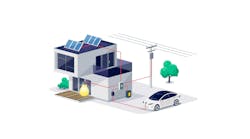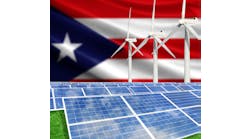A medical organization founded by Syrian doctors worldwide has launched a campaign to bring hospital solar plus storage systems to Syria, where power outages are causing patient deaths.
Last week marked the start of Syria Solar, undertaken by UOSSM (Union des Organisations de Secours et Soins Médicaux), which operates 12 major hospitals and supports 120 clinics inside Syria.
“The majority of the electrical infrastructure in Syria was either bombed, dismantled or destroyed. Hospitals depend on diesel generators and are vulnerable to outages and price surges. Incubators, respirators and other life-saving equipment need stable access to power. Many patients have died from simple power outages,” said Dr. Anas Al Kassem, chairman of UOSSM-Canada.
UOSSM, which has offices in Chevy Chase, Maryland and five other cities worldwide, decided to undertake the campaign after completing testing on its first hospital solar plus storage system in Syria. The project couples advanced data controls with a 480 solar panels that produce 127 kW of DC power and 288 batteries capable of storing 720 kWh.
“This project is a symbol of hope for the Syrian people. We wanted to show the world that Syrians still believe in a brighter future and embrace positivity and progress,” said Dr. Al Kassem.
UOSSM is keeping the identity of the hospital confidential to protect its staff. So far, the solar panels have allowed the facility to save about 1,850 gallons of diesel per month on average. This amounts to about 20-30 percent of the monthly energy cost of the hospital, according to the organization.
The hospital solar plus storage system can fully power the intensive care unit, operating rooms and emergency departments during diesel outages.
Now the organization hopes to bring hospital solar plus storage systems to five additional medical facilities in Syria. UOSSM says it is soliciting funding partners for the projects.
Watch this video for a look inside a Syrian hospital transformed with solar.
“Solar energy is a democratizing force that has the capacity to empower institutions and communities in very positive ways,” said Tarek Makdissi, project director- UOSSM Syria Solar Initiative. “Syria is in one of the best regions globally to harvest solar energy, and needs to be leveraged. Our dream is to see every medical facility in Syria running on clean, sustainable energy.”
More details about the hospital solar plus storage project are available at the Syria Solar website.
Follow Microgrid Knowledge on Twitter @MicrogridNews






